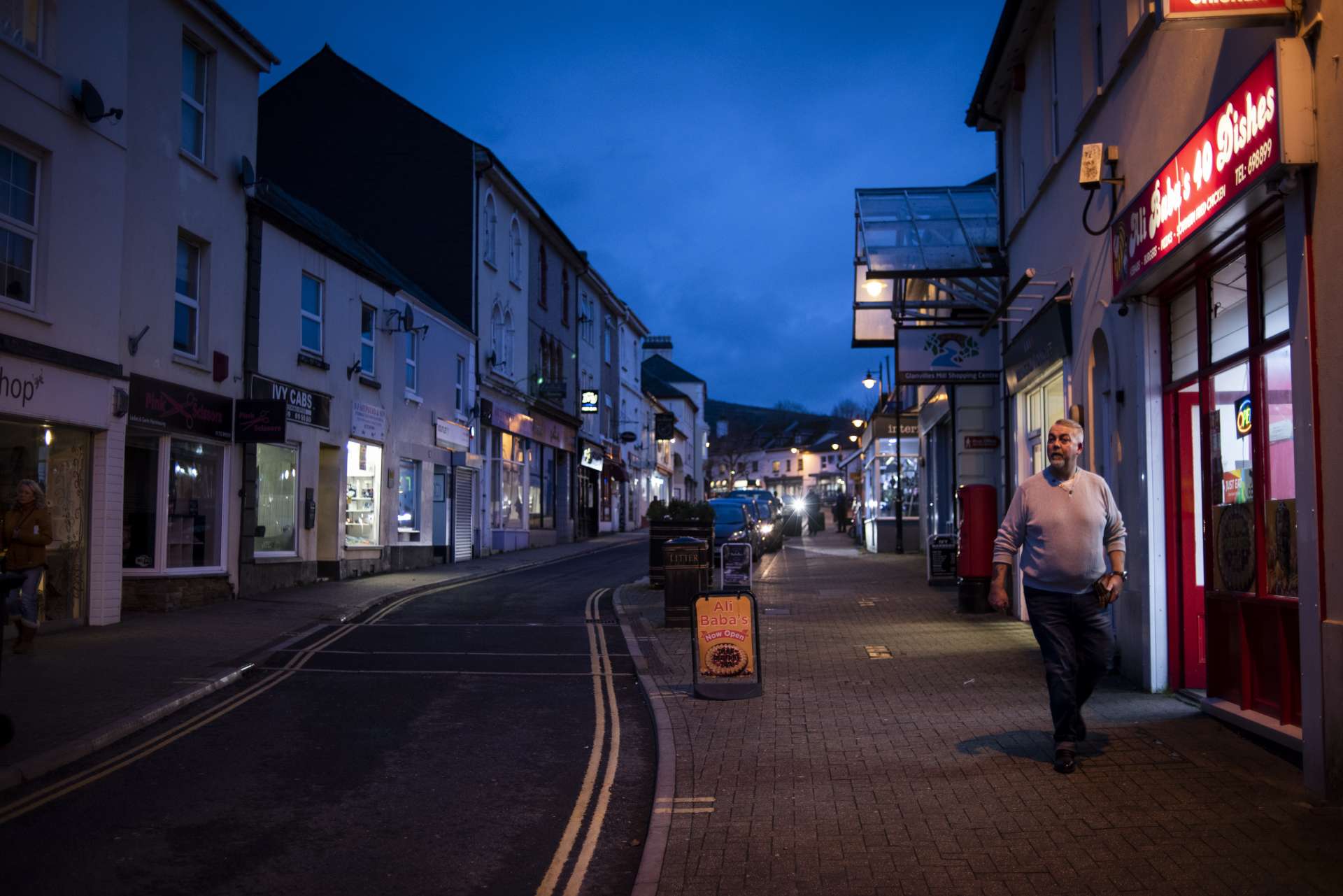
PHILIP HATCHER-MOORE FOR "THE WORLD"
ReportageIn 1973, this small town in the south-west of England celebrated with great fanfare the accession of the United Kingdom to the European Economic Community. But forty-six years later, the inhabitants are deeply disillusioned.
"What's going on Friday? " questions with sincere naivety Chris Bailey. This slender 38-year-old business man grew up in Ivybridge, a small town in the county of Devon in the south-west of England. In 2016, he voted to keep the UK in the European Union (EU), as did the majority (52.9%) of the residents of the rural constituency of South Hams, on which the town depends. But today he is no more moved than that on January 31, his country leaves the EU for good.
It’s that in a few years, weariness has won Chris Bailey, crossed in front of the Constitutional Club, the association of the city's conservatives, where proudly sits the Union Jack, the British flag. "After three years of hearing about Brexit, I figured it was time to finish so that we could finally focus on the really important issues. " So in the last general election, in December 2019, he supported the conservatives of Prime Minister Boris Johnson, favorable to Brexit.

A "brass band for Europe" and a week of festivities
Like many residents of Ivybridge, he has only recently heard of the "fanfare for Europe" that had livened up the streets of his hometown for a whole week, forty-seven years earlier. "It was my mother, who is a farmer in the area, who showed me the pictures", says he.
In January 1973, Conservative Prime Minister Edward Heath called on local authorities to honor the United Kingdom’s accession to the European Economic Community (EEC) with great fanfare. Ivybridge, which was then only a parish of some 2,500 souls, had lent itself to the game allocating to the festivities the sum – substantial for the time – of 50 pounds for flags, tinsel and drinks, but also the costs transport of 73 French guests from its twin city, Saint-Pierre-sur-Dives (Calvados). Faced with the craze of the organizers, Westminster will even end up granting them an envelope of 400 additional pounds, taken from the 350,000 of the national budget devoted to celebrations.
#OnThisDay 1973: "The occasion was also marked by the launching of the Ivybridge European Community Song" Resident… https://t.co/eMqlSHLxAQ

"Things have changed a lot around here you know", recounts with passion Sheila Hancox, septuagenarian in charge of archives for the association Ivybridge Heritage & Archives, installed in the kitchen of her small pavilion on the outskirts of the historic center of the town. Arrived at Ivybridge with her husband Martin in 1987, she had to go to the big neighboring city of Plymouth to recover the press clippings relating to the parade. Before images shot in 1973 by the BBC did not go viral, mid-January, this part of local history was only the subject of a short paragraph on the association's website and it was impossible to find traces in the dedicated section of the municipal library . "Until then, most of the locals had no idea that such an event could have taken place here," smiles this talkative round face.




